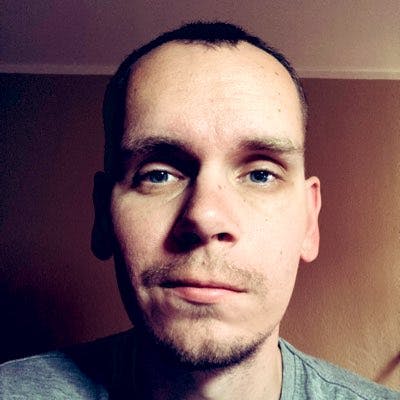Are you unhappy with your current job?
Has your career stopped at some point, and you have no idea what to do next?
Or you just need some fresh air, and a new job but are afraid to change?
You are not alone with these feelings!
In my earlier post, I addressed why I changed my stable job during COVID-19. You can read it here.
In this post, I would like to summarize the process, how did I find my first remote job - what steps and mistakes did I make.
How did I begin?
As everybody does. I have opened some local (Hungarian) job hunting sites. There weren't many open jobs in the city I live, only about 60 km away, which is around 1-1.5 hours away with a car. That's not a possibility for me.
I'm an everyday father, not a weekend father - my kids are the most important thing for me. 2-3 hours of commuting each day is a lot. No thanks... nope...
A week later, I realized the nearby jobs were terrible. They would presumably have hired me, but I do not want to be 'out of the frying pan into the fire' - I saw countless people doing it. They were jumping in and out of jobs because they are unsatisfied with all of them.
They thought it would be super awesome to work for another large company, but 'money doesn't grow on trees' there either, or as we say this in Hungarian (raw translation), 'the fence isn't of sausage.'
Think before the act.
Before you jump into your next opportunity, start imagining the kind of job you favor. Write down all requirements you would like to have in your next job as I did:
I do not want to:
- Travel to a different city.
- Work at a multinational company.
I do want to:
- Maintain my side-projects.
- Feel myself valuable.
- +1 be part of something extraordinary.
Considering the things I did not want, one thing was sure.
I need to find a remote job.
Luckily - if I may state it - the pandemic made a massive growth in the remote job market.
A remote job, hmm.
Changing a steady local job with a family of 4 is already very terrifying. You could think of how scary it was to seek a remote position. No one of my family or friends had ever did this, so I could not ask for any advice.
I opened Remoteok.io, which is a brilliant site, with lots of opportunities. But as with all job-hunting sites, all posts are full of impossible requirements, which obviously no one could meet. You have to speak four languages - fluently -, be in the correct timezone, and know at least three programming languages with at least 10+ years of experience - each.
I don't lie when I say I went through 1000+ potential positions and could not find even one where I can say confidently - that's the one I'm looking for!
For most of them, I thought that I was not qualified enough. Maybe true, maybe not, but one thing was sure:
Companies always put a lot of unnecessary - and impossible to meet - demands in their job description. If you have only 10% of the requirements, you are good to go! Send your CV! You have nothing to lose! You only get experience.
Like when you need ten years of experience in a programming language, which only exists for five years - classic.
(Of course, there are jobs where the requirements are tremendous but still totally reflect the truth. You do not want to work there; trust me.)
So I needed to start thinking again because I began to feel lost in the job-hunting process - how can I do it differently?
Seek for a company, not a job!
The fact that I hunted for a remote job instead of a local made it more accessible to do it like this - the options are way more widespread. There are no geographical boundaries. This is how the world - at least in IT - should look like. There should not be any boundaries.
On the next day, I made a list of the possible companies. That's how I settled with two of my favorite open-source companies on the list - GitLab and CodeSandbox.
First, I decided to try Gitlab but immediately received feedback - they forgot to update their website, and the job has already been filled. That escalated quickly.
Next. CodeSandbox, which was a huge success. They reached out to me days after I mailed my CV. The recruiting process was a bit long, but I was patient - you know, we had COVID in front of the door, and they are doing serious business there.
How did I achieve the huge success?
If you are in an interview, you need to promote yourself. The interviewer needs to buy you, so you have to sell yourself - sounds a bit weird, but it's true. You need to show them what you are as a person and as a coder.
I showed them my side-projects. I showed what I've done in my free time and explained how I was thinking during development. The most attractive part for them was one ancient project resting in the shadows of my Github account.
It was an online coding environment (just like CodeSandbox)- what a coincidence. Guess what happened?
Ives, one of the founders of CodeSandbox, loved it. And probably that was one of the main reasons they hired me.
They were looking for a person with Kubernetes skills. I only had tiny knowledge of it, but still got the job, because I showed them I'm capable of learning anything very efficiently. That was the other reason they hired me.
No magic involved.
Lessons learned
- Follow your passion; don't be afraid to change jobs.
- 10% could be enough.
- Do side-projects, and do not be afraid to show them during the interview. You never know which one will change your future career.
- Apply for those jobs NOW! :-)
If you are interested in my journey, be sure to follow me on Twitter or here.


